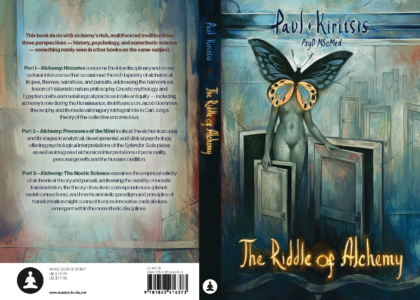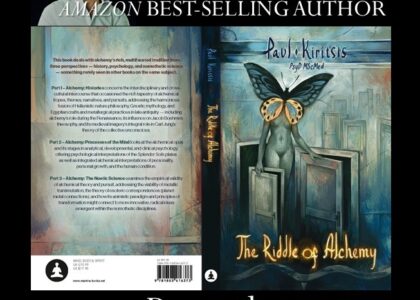
The primary purpose of the Mesa World Retreat at the Grampians was to de-stress, de-clutter, and dis-identify from the monotonous routines of our day-to-day lives. One of the first exercises we did was what one might define as a deliberate expulsion of negatively-charged emotion, an exercise which took the guise of unconditional forgiveness. The act of forgiveness is important, if only to exorcise inner demons which may in the end prove detrimental to our psychological and spiritual wellbeing.
We were to compile a list of persons that warranted forgiveness on our part. After compiling these lists, we would enter into our meditation space in the master bedroom for about fifteen to twenty minutes (or however much time was needed) and visualize each individual in turn. This could be done sitting or lying down on the bed and with the eyes open or shut. The methodology was secondary to the act so particularities were insignificant. The aim was to visualize them before us, forgive them, and then dismiss them with love. It was as simple as that.
I ended up forgiving about six people who I felt had wronged and dishonoured me. I had to forgive so and so for being rude; so and so for completely misunderstanding my intention; and so and so for trying to obviate me from my chosen path. You get the drift. In my eyes much of this seemed clear-cut, until I ruminated upon it further. Suddenly, as if colliding with some vortices of inner wisdom, I began to realize that the external events that had led to these lamentable circumstances weren’t as black and white as what they had originally appeared. We all look at external events with a kaleidoscope wrought by our own perceptions, perceptions which are themselves motivated by a bundle of sentiments, biases, thought-desires, and goals. Some we’re conscious of, however in most cases it appears we’re unconscious of the motivating factors behind our behaviours and actions. Throw in the fact that these are all in a continual state of evolutionary development and what we get is extrapsychic tension and conflict. By virtue of these differences, two individuals will rarely be on the same wavelength with every aspect of their lives.
Often what we and what significant others want on an unconscious level are as different as chalk and cheese. We externalize these intrinsic valuations in some way or another and when they are not returned or reciprocated we become irritated, angry, resentful, and in the most extreme cases outright vindictive. It becomes a case of, “When I talk green the colour of your behaviour is red. When I talk red, the colour of your behaviour is green. Why can’t we both be on the wavelength of red?” Naturally the end result is a chemical reaction that mirrors the meeting of fire and water–the noxious fumes of misunderstanding and argument.
We go out of our way to do things for significant others, people we have become enamoured of, in an effort to please them and encourage a favourable assessment us on their part. We wish to prove, whether we want to admit this or not, that we are worthy of their unconditional love and affection. When their reaction isn’t the one scripted by own our unconscious desires, or worse still, when there is no reaction at all, we show our other ‘face’ and start firing mental harpoons on all cylinders, intent on downgrading, hurting, or humiliating them for their sacrilegious non-compliance. We are all like the gods and goddesses of Greek mythology, trapped like a yoyo between love and hate; we offer love freely but take it back when our delicate egos are wounded. The downside to this innate cognitive pattern is that, even if the object of our affections did express some level of affinity to begin with, we begin to push them away with our bifurcated insolence–the polarities of love and hate, empathy and jealousy.
So after having forgiven these people for their perceived wrongdoings, I thought about individuals who I had disappointed or disheartened by my non-empathic resonance to their conscious efforts and strivings to connect. Perhaps I needed to ask for their forgiveness, and paradoxically, the forgiveness of those I had just forgiven. I saw the interactive field between myself and another individual in monotone; that individual sees it in greyscale; and a detached, third-person observer sees it as a colourful swarm. The exercise made me realize more than ever before the remarkable degree to which we all interpret the interactive field through our own perceptual lenses. These lenses are curbed at all times by the unconscious drives operating in the service of egoic power, pride, and fulfilment. We could also say, in classical Freudian terms, that this force panders to ego defence. Because the drives in any two individuals is never uniformly identical, there is going to be an outer struggle that resembles, to all intents and purposes, the inner struggle between our dominant husbands, our ego, and our shy housewives, a higher Self eternally striving to bind us to the yellow brick road of self-actualization and the expression of creative potential.
Hence, I feel the lesson to be learned here is that, when we come together as a couple or group, we need to communicate as openly as possible as to prevent misunderstanding and unnecessary heartache. And of course the best way to enter into an authentic relationship with anyone is to first know thyself. Inscribed into the pronaos of the Apollo temple at ancient Delphi as gnōthi seauton, this axiom alludes to knowledge of our unconscious motivations and the inherent nature of our higher Selves. The latter seems to remain constant, however the former is mutable and changes with time. By taking the time to self-reflect, to evaluate and to analyse our own cognitive and behavioural responses, we can partake of more meaningful and emotionally satisfying relationships underpinned by mutuality and trust with intrapersonal mirrors who are ever-present and invested in the relationship.
Know thyself, for to do so will throw open the gates leading to personal truth; to the fortification of empathic relationships that stand the test of time; and to a more contented and fruitful existence.









